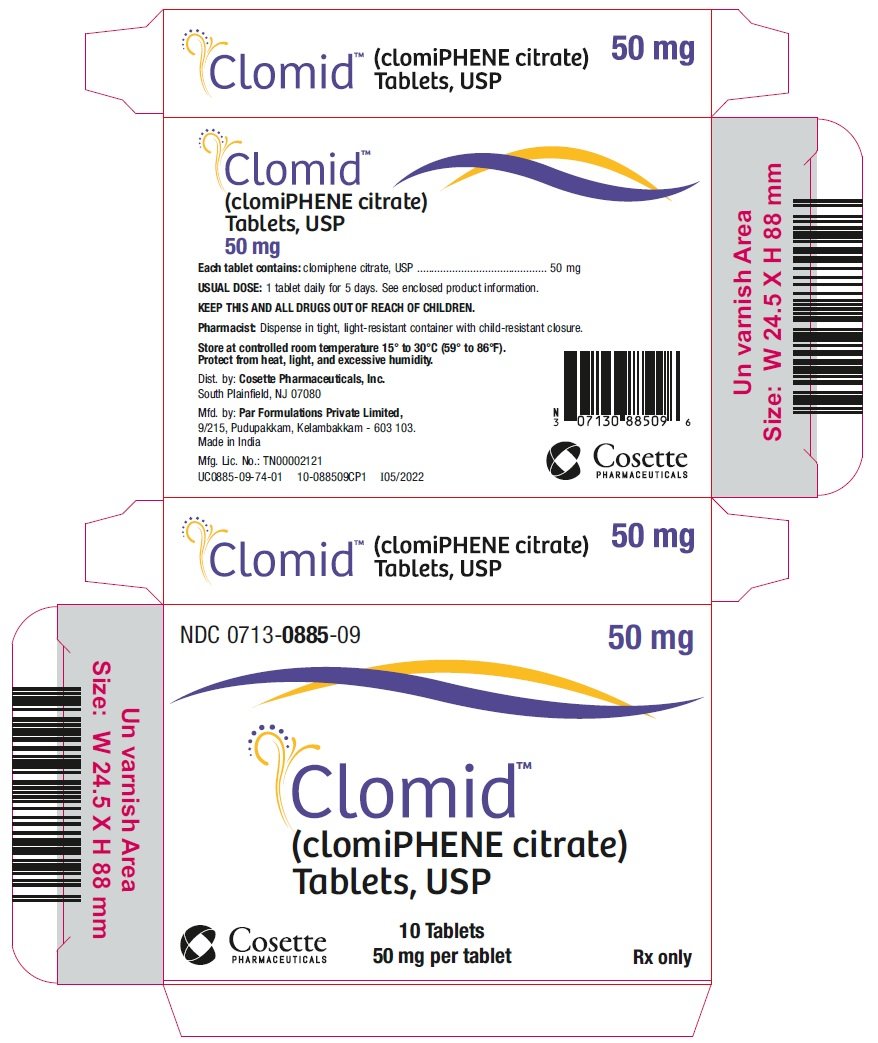If you’re looking to purchase Clomid without a prescription, you’re in the right place. Clomid, or clomiphene citrate, is widely recognized for its role in treating ovulatory disorders and improving fertility rates. Many individuals seek alternatives to the traditional prescription route for various reasons. Here’s what you need to know about accessing Clomid safely and responsibly.
Clomid is often sought after for its affordability and accessibility, particularly for those not ready to consult a healthcare professional. While various online pharmacies offer Clomid without a prescription, it’s critical to approach these options with caution. Not all sources are legitimate, so verifying the credibility of any online provider is a must. Look for pharmacies that require a consultation, as professional guidance can help ensure that Clomid is a suitable choice for your specific situation.
Understanding the appropriate dosage and timing is key to maximizing the benefits of Clomid. Typically, treatment involves taking the medication for five days at the beginning of your menstrual cycle. Many individuals report positive outcomes, but it’s advisable to monitor your body’s response and consider follow-up consultations to track progress. Emphasizing this point can make a significant difference in your fertility journey, easing concerns and optimizing your chances of conception.
- No Prescription Needed Clomid
- What is Clomid and How Does It Work?
- Legal Status of Over-the-Counter Clomid
- Potential Risks of Using Clomid Without a Prescription
- Health Risks
- Psychological Impact
- Dosage Recommendations for Non-Prescription Clomid
- Administration Guidelines
- Side Effects and Management
- Assessing Your Fertility Needs Before Using Clomid
- Possible Side Effects of Clomid and Their Management
- Alternatives to Clomid for Fertility Treatment
- Patient Testimonials: Experiences with No Prescription Clomid
No Prescription Needed Clomid
Clomid, or Clomiphene Citrate, is often used to treat infertility by stimulating ovulation in women. In many cases, individuals seek ways to obtain Clomid without a prescription. This can be tempting, but it is critical to understand the potential risks and safety concerns involved.
Over-the-counter availability of Clomid varies significantly by country. In some regions, it can be acquired through online pharmacies that may not require a prescription. However, these sources often lack proper regulatory oversight, leading to potential quality and safety issues. It’s advisable to prioritize verified and trustworthy providers to ensure product authenticity.
Consulting with a healthcare professional remains the best strategy before considering Clomid. A doctor can evaluate your specific situation, provide necessary tests, and recommend the appropriate dosage. Self-medication can lead to serious side effects, including ovarian hyperstimulation syndrome and potential negative impacts on overall health.
| Considerations for Using Clomid | Details |
|---|---|
| Health Assessment | Consult with a doctor for a thorough check-up to identify any underlying conditions. |
| Dosage | Follow prescribed dosages carefully; self-dosing can result in complications. |
| Monitoring | Regular monitoring by a healthcare provider is essential to track ovulation and response to treatment. |
| Side Effects | Aware of common side effects such as mood swings, nausea, and headaches. |
| Legalities | Be aware of the legal implications of obtaining prescription medications without a valid prescription in your area. |
If you still consider acquiring Clomid without a prescription, thoroughly research every option and evaluate it against the potential health risks. Prioritize safety and make informed choices regarding fertility treatments.
What is Clomid and How Does It Work?
Clomid, or clomiphene citrate, is a medication primarily used to treat infertility in women who do not ovulate regularly. It functions as a selective estrogen receptor modulator (SERM), blocking estrogen’s effects in certain areas of the body, particularly the hypothalamus. This blockage signals the pituitary gland to release more follicle-stimulating hormone (FSH) and luteinizing hormone (LH), stimulating the ovaries to produce eggs.
Typically, Clomid is prescribed in cycles, with patients taking the medication for five days early in their menstrual cycle. By promoting the growth and release of eggs, Clomid enhances the chance of conception. Monitoring through blood tests and ultrasounds is often recommended to assess ovarian response and ovulation, ensuring a tailored approach to treatment.
While Clomid is effective, it also has potential side effects, such as hot flashes, mood swings, and ovarian hyperstimulation syndrome (OHSS). Regular consultations with a healthcare provider can help manage these effects and adjust dosages if necessary. Understanding the balance between benefits and risks is key for anyone considering this medication.
In some cases, healthcare professionals may recommend Clomid when other fertility treatments have not yielded results. It is a widely recognized option for women experiencing anovulation and can be a first step before more invasive procedures. Educating oneself about Clomid can empower patients to make informed decisions regarding their reproductive health.
Legal Status of Over-the-Counter Clomid
Clomid, or clomiphene citrate, typically requires a prescription in many countries, including the United States. Its legal status as a prescription medication stems from potential side effects and the necessity for medical supervision when using it for fertility treatments. Due to its hormonal effects, it’s important for healthcare providers to evaluate individual cases before prescribing.
Some jurisdictions discuss the possibility of allowing Clomid to be sold over the counter. Arguments for this include the growing interest in self-directed fertility treatments and the possibility of monitoring through pharmacists, who could provide guidance on usage. However, regulatory bodies have not made significant changes as of now.
In certain countries, Clomid can be accessed without a prescription, but consumers should proceed cautiously. Consulting healthcare providers remains the best approach to addressing infertility, as medical advice helps to mitigate risks associated with improper use.
Always check local regulations regarding Clomid. Laws vary widely; therefore, understanding specific legal statuses in your area is essential before considering purchasing Clomid without a prescription.
Potential Risks of Using Clomid Without a Prescription
Using Clomid without a prescription poses significant health risks that should not be overlooked. Self-medication can lead to unintended consequences, impacting both physical and emotional well-being.
Health Risks
- Hormonal Imbalance: Clomid influences hormone production. Without professional guidance, users may experience imbalances, causing irregular cycles or unexpected symptoms.
- Ovarian Hyperstimulation Syndrome (OHSS): Self-dosing can result in OHSS, a serious condition characterized by swollen ovaries, pain, and in severe cases, fluid buildup in the abdomen.
- Multiple Pregnancies: Incorrect usage increases the risk of twins or more, leading to complications for both the mother and babies.
Psychological Impact
- Increased Anxiety: The pressure to conceive can lead to anxiety and stress, which may be exacerbated by improper use of Clomid.
- Loss of Trust in Medical Advice: Relying on over-the-counter sources for medication can diminish trust in healthcare providers and professional advice.
Consulting with a healthcare provider ensures a tailored approach based on individual health needs. Regular monitoring decreases the likelihood of adverse effects and enhances the chances for a successful pregnancy. Prioritize safety and seek professional guidance when considering fertility treatments.
Dosage Recommendations for Non-Prescription Clomid
The typical starting dose of Clomid for non-prescription use is 50 mg taken once daily for five days, usually beginning on the fifth day of your menstrual cycle. Monitoring is essential, so follow up with ovulation tests or other methods to determine effectiveness.
If you do not ovulate after the initial cycle, you might adjust the dose to 100 mg daily for another five days during your next cycle. This dosage adjustment should not occur until you have consulted a professional. Limit the Clomid cycles to a maximum of six, as prolonged use increases the risk of ovarian hyperstimulation syndrome.
Administration Guidelines
Take Clomid at the same time each day to maintain consistent levels in your body. If you miss a dose, take it as soon as you remember unless it’s close to the next scheduled dose. In this case, skip the missed dose–do not double up.
Side Effects and Management
Be aware of possible side effects, including hot flashes, mood swings, or visual disturbances. Should any symptoms become severe, consult a healthcare provider promptly. Tracking your body’s responses can aid in adjusting dosages if needed.
Assessing Your Fertility Needs Before Using Clomid
Evaluate your menstrual cycle first. Monitor the length and regularity of your cycles. A typical cycle lasts between 21 and 35 days. Irregular cycles may indicate underlying issues that should be addressed prior to starting Clomid.
Next, consider your ovulation patterns. Consider tracking ovulation with methods such as ovulation predictor kits or basal body temperature charting. Identifying whether you’re ovulating regularly can clarify if Clomid is suitable for you.
Engage in a conversation with your partner about fertility history. Share any previous pregnancies, miscarriages, or reproductive health issues. This information provides valuable context for assessing fertility needs.
Consult a healthcare provider for a comprehensive evaluation. Hormonal imbalances, blocked fallopian tubes, or uterine abnormalities may require different treatments. A doctor can recommend appropriate tests to uncover any underlying concerns.
Consider your age and its impact on fertility. Women over 35 may experience a decline in fertility, making timely assessment and treatment crucial. Discuss age-related factors with your provider to tailor your approach.
Review lifestyle factors that may affect fertility. Maintain a balanced diet, engage in regular exercise, and manage stress. Reducing alcohol intake and quitting smoking can enhance overall reproductive health.
Finally, gather information about Clomid’s potential benefits and risks. Understanding how Clomid works can help you weigh its suitability based on your specific situation. Make informed decisions with the support of your healthcare professional.
Possible Side Effects of Clomid and Their Management
Women taking Clomid may experience side effects that require attention. Common effects include hot flashes and mood swings. To manage hot flashes, wear loose clothing and stay hydrated. Engage in light exercise to alleviate mood fluctuations; practicing mindfulness or yoga can also help stabilize emotions.
Some users report breast tenderness. Wearing a supportive bra can provide relief. If tenderness persists, consult a healthcare provider for advice on managing this symptom.
Abdominal discomfort or bloating is another possibility. Consuming small, frequent meals may ease digestive issues. A warm bath can also contribute to comfort.
An uncommon yet serious side effect is the risk of ovarian hyperstimulation syndrome (OHSS). If symptoms like severe abdominal pain, rapid weight gain, or shortness of breath occur, seek medical attention immediately. Regular check-ups with a healthcare provider can help monitor the body’s response to Clomid.
Headaches and nausea may arise. Over-the-counter pain relief may be acceptable, but consult a provider to ensure safety. Staying hydrated and consuming ginger tea can alleviate nausea.
Impaired vision is rare but concerning. If experiencing blurred vision or other sight changes, contact a healthcare provider promptly. These symptoms might indicate a need to reevaluate the treatment plan.
Keep in close communication with your healthcare provider throughout the treatment process. Report any new or worsening symptoms, as open dialogue ensures tailored management of side effects. Personalizing care enhances the overall experience with Clomid.
Alternatives to Clomid for Fertility Treatment
Letrozole stands out as a highly regarded alternative to Clomid, often used for women with polycystic ovary syndrome (PCOS). This medication can stimulate ovulation more effectively in some cases, with research indicating a higher success rate for achieving pregnancy when compared to Clomid.
Another effective option is Gonadotropins, which include medications like FSH (follicle-stimulating hormone) and LH (luteinizing hormone). These injectables can help women produce multiple eggs, increasing the chances of conception during fertility treatments like IVF. Monitoring through ultrasound is typically required to ensure optimal egg development.
For women experiencing issues with their endocrine system, Metformin can be beneficial. This medication helps manage insulin levels and, when combined with ovulation induction drugs, may enhance ovulation in women with insulin resistance or PCOS.
Intrauterine insemination (IUI) can serve as a less invasive alternative for couples facing fertility challenges. By placing sperm directly into the uterus during ovulation, this technique maximizes the chances of conception, particularly when used alongside ovulation-stimulating medications.
Acupuncture is gaining traction as a complementary treatment for enhancing fertility. Some studies suggest it may improve blood flow to the ovaries and reduce stress, both of which contribute positively to reproductive health.
Finally, lifestyle modifications can significantly impact fertility. A balanced diet, regular exercise, and maintaining a healthy weight can enhance overall reproductive function. Implementing these changes alongside any medical treatment creates a holistic approach to fertility.
Patient Testimonials: Experiences with No Prescription Clomid
Many patients share positive experiences with obtaining Clomid without a prescription. These testimonials highlight personal journeys and specific benefits that have emerged from this access.
-
Sarah, 32: “After months of trying to conceive, I ordered Clomid online. It was so straightforward. I saw results by my second cycle. My doctor was supportive and monitored my progress.”
-
Mike, 28: “Clomid made a huge difference for my partner and me. Being able to get it without a prescription eased our stress. We felt in control of our fertility journey.”
-
Jessica, 30: “The process was smooth and respectful. I appreciated the anonymity when ordering. I matched my cycle timing perfectly and ovulated within weeks.”
-
Tom, 35: “I have PCOS and struggled for years. Finding Clomid without needing a doctor’s appointment was empowering. I recommend it to others facing similar challenges.”
-
Amy, 29: “Coping with infertility can be isolating. Accessing Clomid readily helped me feel proactive. I achieved a successful pregnancy, and it feels fantastic.”
-
Kate, 34: “I didn’t know how to start treatment. With online access, I could research Clomid first and decide confidently. I appreciated the non-judgmental support.”
These testimonials reflect a shift in how patients approach fertility treatments. With the availability of Clomid without a prescription, many individuals feel empowered, informed, and hopeful in their pursuit of starting a family.








